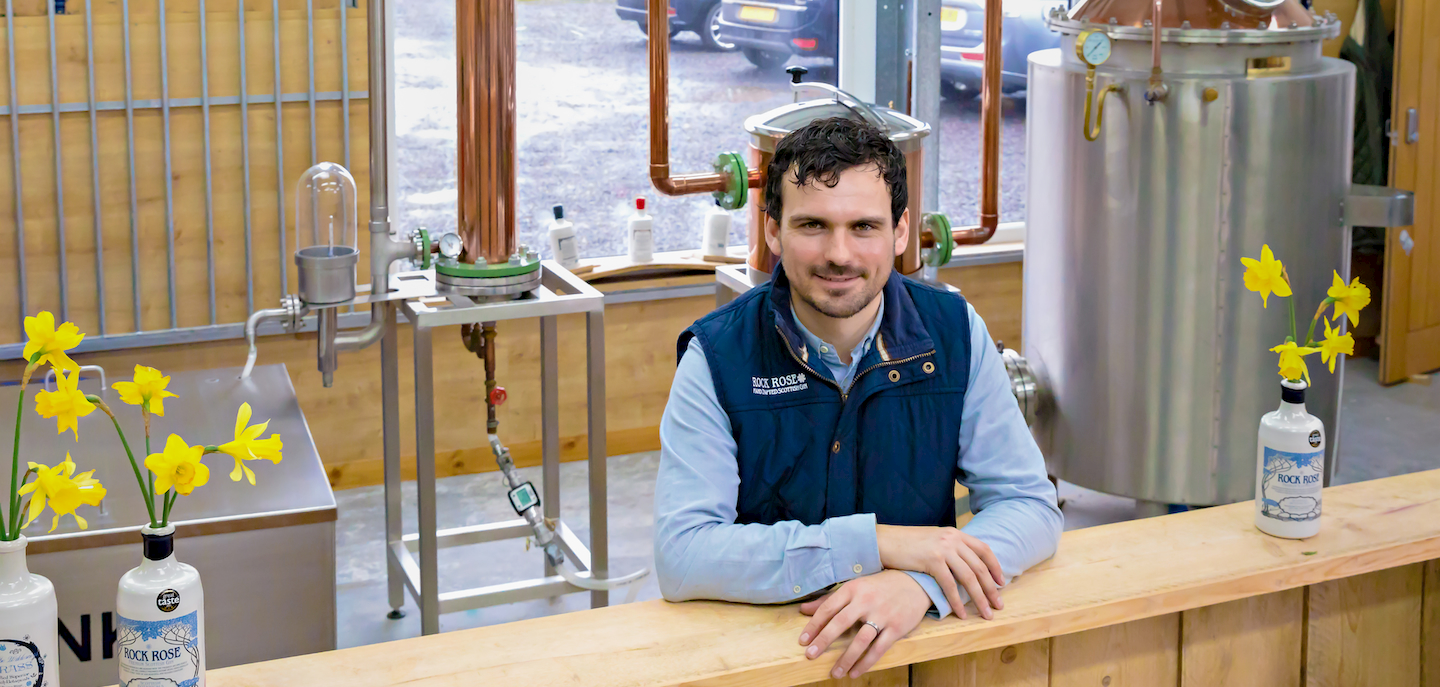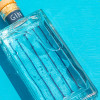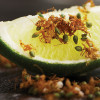
While working in the oil and gas industry, Martin got used to the easy commute that comes with offshore projects – moving from his bed to breakfast to desk in a matter of minutes. And while the job took him all around the world, when he and wife Claire were ready to raise a family back home in Caithness (in the remote Scottish Highlands), the couple knew they would need to create their own opportunities. For them, that meant establishing a distillery.
“I didn’t like spending time away from my family, but I loved my job – I worked with phenomenal engineers and it was a really technically challenging environment,” says Martin. “To give that up, I knew I had to find something that I really enjoyed doing.”
Martin jokes that one non-negotiable was keeping his commuting time to a minimum, something that prompted the Murrays to build Dunnet Bay Distillery on a main road just a mile from their home.
“It turned out to be a pretty good decision,” says Martin. “A year later, the North Coast 500 opened and we were suddenly sitting on this coastal driving route. We went from about 1,000 visitors to 35,000 visitors in the space of three years.”
The road to success
Winding past white-sand beaches and rugged mountains, the route might have put the distillery on the map, but it’s what’s inside their bottles – Rock Rose Gin and Holy Grass Vodka – that turned their side project into a full-time venture much faster than they ever predicted.
“Our first two batches sold out through online pre-orders. The first batch went in 40 hours, the second batch in 24 hours,” says Martin. “We were delighted, but then I thought, ‘None of these people have actually tasted it yet!’”
As the first bottles left the distillery, the couple spent an anxious few days refreshing their screens to see what the feedback was like. “You feel so attached to it. It’s your baby and you want to know people are happy with it. Thankfully, they loved it!”
Almost six years later, Dunnet Bay Distillers now exports to 20 countries and in 2019 was named Distillery of the Year at the Scottish Gin Awards. The couple also picked up a gold award for its seasonal Rock Rose Gin Winter Edition and a silver gong for Rock Rose Old Tom Pink Grapefruit. Prince Charles has even dropped by for a visit, but Martin still insists on reading every review to make sure they are getting it right.
Creating a community
“All the recipe development, the bottling, the distilling – from day one it’s all been done here and all the ideas come from within the business,” says Martin. Not only does this give them a high level of control over their product, but it’s also allowed the team to grow.
“At the start, we were juggling everything ourselves. Then you get someone in and realise that one of the things you do, they can do better. You feel a little bit useless at first, but you get over that when you realise how helpful they are! We are in a small village in a very rural part of Scotland, so it’s good to know we’ve created jobs that might stop people from leaving the area or being unemployed.”
The use of local ingredients adds a strong sense of place to each and every drop, and Martin worked with local herbalist Brian Lamb to identify berries and botanicals that could be used to create the perfect gin.
Sea buckthorn’s orange berries and the floral flavour of rhodiola rosea form the backbone of Rock Rose, while Seasonal Editions have featured the light liquorice notes of dandelion (spring), little-known Dunnet blaeberries and nasturtium flowers grown in their very own geo-dome (autumn), and foraged spruce tips (winter).
It was while carrying out this research that Martin came across holy grass growing alongside a local river. Devastated that it didn’t work in his gin, he came up with a simple solution: use it to make vodka.
“It was a pet project. I thought, ‘If I only sell six bottles to myself, it will have been a success!’” But he needn’t have doubted the allure of this sweet-scented grass.
“I sent a bottle to our Russian gin distributor, thinking it would be dismissed as Scottish water, but they really liked it! Now we sell our vodka into Russia, which is really pretty cool.”
An artistic approach
Local (and national) artists have also played a role in the evolution of Dunnet Bay Distillers, and Old Tom Pink Grapefruit was actually born out of a ‘design a label’ competition. “We had no idea how it would go,” says Martin. “But we had some really talented entries and the winning design by Hope Blamire was absolutely stunning.”
As part of the deal, Hope won 12 bottles of gin made according to a flavour profile of her choice: something slightly sweet with pink grapefruit. “She was raving about it, and because she had a reasonable social media following, people found out and wanted to buy a bottle.”
After a few limited releases, and with its popularity showing no sign of slowing down, this citrusy Artists’ Edition became one of the distillery’s core expressions. Each batch features the fresh peel of 60 organic grapefruits, which are sourced from a small grocer’s in Edinburgh and peeled on-site. And, because the fresh peel brings so much nose to the drink, a little dried peel is introduced to add an extra burst of flavour.
“Then we complement the grapefruit with other citrus ingredients, like the lemon sherbet flavour of lemon verbena. Most Old Toms are sweetened using confectionery sugar, but after trialling several different sugars and honey, we found muscovado brought out the most flavour.”
The team continues to collaborate with artists, having recently hosted an exhibition at the tasting room. Last year, they also launched the Creative Collection to shine a light on local talent with four flavourful creations (including Jam Doughnut Gin and Clootie Dumpling Gin, which is a tribute to the traditional Scottish steamed pudding) featuring artwork by four artists.
One big family
It says a lot about Dunnet Bay Distillers that, among all the positive feedback, one piece of criticism can actually be seen as an example of what makes it such a special place.
“One day I got a call from a store in London who said our products were inconsistent,” says Martin. “I thought it was the end of the world. He said that some of the wax seals on the bottles were straight while some were at an angle. When I went home and checked, he was right.
“Then I realised what had happened. When we started out, Claire and I were run off our feet so we enlisted our parents to help with bottling. I taught my dad to wax straight, Claire taught her mum to wax at an angle. I knew then that I was never going to change this because it’s part of our family and part of our business. I phoned the store the next day, thanked the guy for bringing it to our attention and told him the story. He got it immediately.”
Martin says that shop in London continues to tell the story to its customers. The wax seals remain inconsistent, and it’s just the way the Murrays like them.
A bottle for life
With Martin in charge of distilling, Claire manages everything else – planning and running events, the tasting room and those incredible bottles. Despite many established gin brands opting for coloured glass – Bombay blue, Beefeater 24 red, Tanqueray green – the couple went with their gut and chose ceramic.
“When we were starting out I said to Claire, ‘If we never sell a bottle of gin it’s because you've done a terrible job with the design.’ She turned around and she said, ‘If we don't sell a second bottle of gin it’s because you've done a terrible job with the distilling.’ I never mentioned it again!”
The gamble paid off. Customers loved the design and the tactile quality of the screen-printed labels. As a result, the ceramic bottles have become one of the greatest examples of Dunnet Bay Distillers’ eco-credentials.
“We wanted to make the business as sustainable as possible from day one,” says Martin. “We hoped customers would recycle their bottles, but they wanted to keep them. To support this, we devised refills that come in a fully recyclable pouch that can be popped in the post and returned to us. There’s no need for a stamp or an envelope – we wanted it to be as easy as possible.”
This year, the distillery has generated more electricity from solar panels than is used on-site, while the hybrid company vehicle is powered by electricity for 90% of its journeys. “We are always trying,” says Martin. “We have a list of things that we’re doing and it doesn’t stop until we can’t do anything more.”
A tuneful accompaniment
“Our distiller for the Gin Society batch was Kevin Swanson – he’s in a rock band called Neon Waltz, which supports Noel Gallagher. In his previous role, he wasn’t granted time off to play in the band. But he works for us now. Part of the deal is that, when he gets the call, he goes off on tour. It’s a win for us both. I suggest you enjoy Kevin’s gin while listening to my favourite track by his band – Perfect Frame.”
Share this post:






